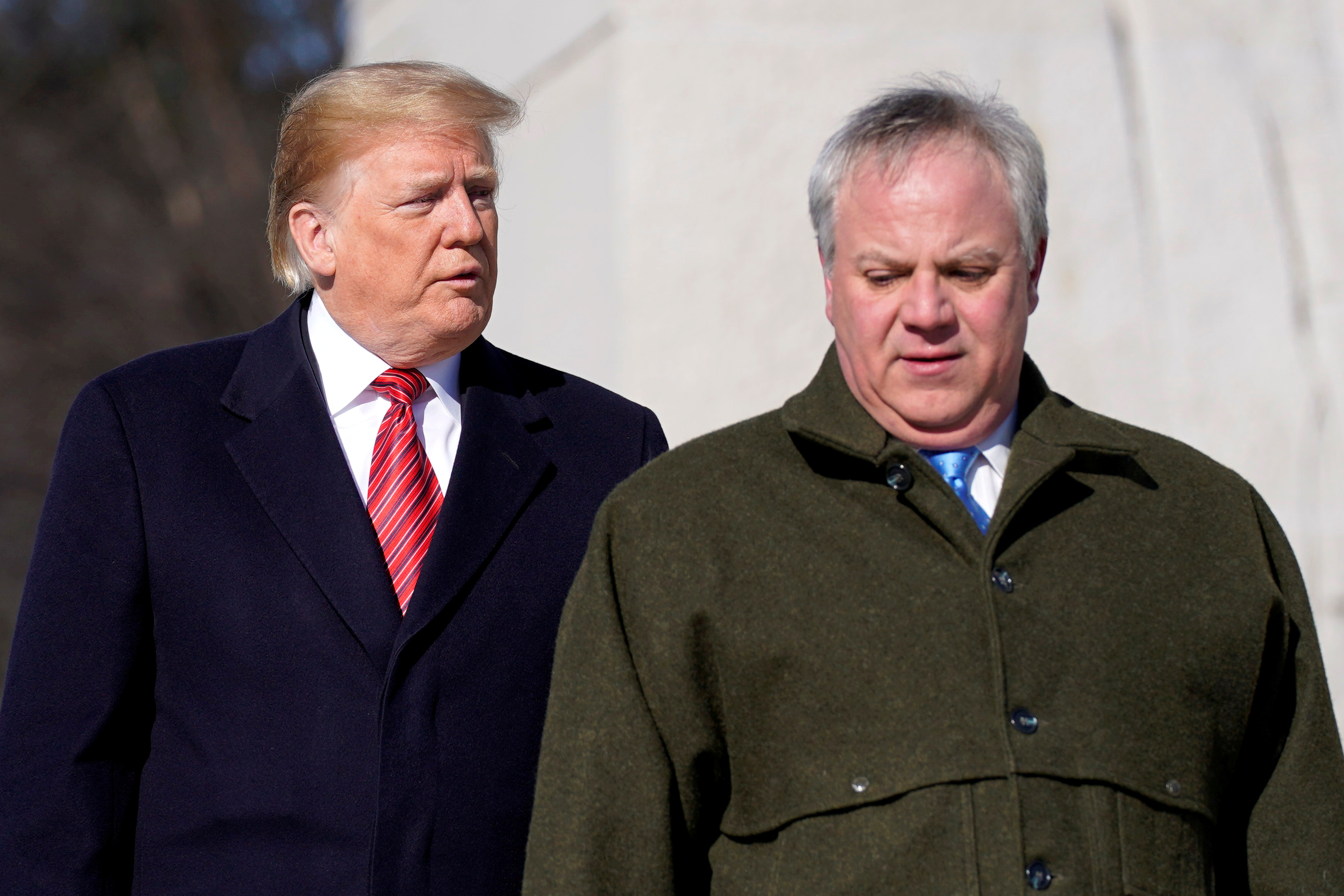Senate set to confirm ex-lobbyist Bernhardt as Interior chief
Bernhardt would lead an agency overseeing controversial oil developments in Alaska's Arctic, both onshore and offshore.

The U.S. Senate is set to confirm former energy lobbyist David Bernhardt as the next Interior Secretary on Thursday, even as coastal state senators from both parties raise concerns about his plans to vastly expand offshore drilling.
Bernhardt would replace former Montana Congressman Ryan Zinke as the head of the Interior Department, which manages federal and tribal lands and waters and is key to President Donald Trump’s efforts to boost domestic crude oil, natural gas and coal production.
[Court ruling on offshore Arctic leasing creates new obstacle for planned Beaufort sale]
He is expected to be approved by the Republican-controlled Senate over the objections of Democrats concerned that his former lobbying for industry means he will favor energy and minerals development over conservation.
Republican Senators including Marco Rubio and Rick Scott of Florida have also raised concerns over the Interior Department’s looming five-year offshore drilling plan, which could expand drilling into new parts of the U.S. Gulf of Mexico, Atlantic, Pacific and Arctic.
In the Arctic, a recent court ruling has put such offshore drilling in doubt. Meanwhile, the Interior Department also oversees the controversial efforts to drill for oil in Alaska’s Arctic National Wildlife Refuge.
Coastal states like Florida are concerned about the impact of a spill on their tourism industries.
But in a sign that Bernhardt has assuaged some of those concerns in recent days, Rubio said on Twitter Wednesday evening he would vote for Berhardt’s confirmation.
“I am VERY confident that when all is said & done no oil drilling is coming to our coastline,” Rubio said.
Rubio and Scott had sent a letter to Bernhardt last month urging him to keep Florida protected from offshore drilling and honor a promise Zinke had made prior to his resignation that Florida would be exempted from the plan.
Scott did not comment on Bernhardt’s confirmation.
Democratic senators continued to urge that the Senate reject Bernhardt’s confirmation because of his close ties to some of the industries that the Interior Department would regulate.
Oregon Democratic Senator Ron Wyden, for example, asked the Department of Justice earlier this week to investigate whether Bernhardt was in violation of lobbying disclosure laws.
“Add these troubling allegations to the long list of reasons why the nomination of David Bernhardt should be stopped, or at minimum delayed, until the Senate and the American people get all of the facts,” said Wyden.